
Randolph Denard Ornette Coleman was an American jazz saxophonist, trumpeter, violinist, and composer. He was best known as a principal founder of the free jazz genre, a term derived from his 1960 album Free Jazz: A Collective Improvisation. His pioneering works often abandoned the harmony-based composition, tonality, chord changes, and fixed rhythm found in earlier jazz idioms. Instead, Coleman emphasized an experimental approach to improvisation, rooted in ensemble playing and blues phrasing. AllMusic called him "one of the most beloved and polarizing figures in jazz history," noting that while "now celebrated as a fearless innovator and a genius, he was initially regarded by peers and critics as rebellious, disruptive, and even a fraud."

Donald Eugene Cherry was an American jazz trumpeter. Beginning in the late 1950s, he had a long tenure performing in the bands of saxophonist Ornette Coleman, including on the pioneering free jazz albums The Shape of Jazz to Come (1959) and Free Jazz: A Collective Improvisation (1960). Cherry also collaborated separately with musicians such as John Coltrane, Charlie Haden, Sun Ra, Ed Blackwell, the New York Contemporary Five, and Albert Ayler.

Charles Edward Haden was an American jazz double bass player, bandleader, composer and educator whose career spanned more than 50 years. Building on the work of predecessors such as Jimmy Blanton and Charles Mingus, Haden helped to revolutionize the harmonic concept of bass playing in jazz, evolving a style that sometimes complemented the soloist, and other times moved independently, liberating bassists from a strictly accompanying role, to allow more direct participation in group improvisation.

Old and New Dreams was an American jazz group that was active from 1976 to 1987. The group was composed of tenor saxophone player Dewey Redman, bassist Charlie Haden, trumpeter Don Cherry and drummer Ed Blackwell. All of the members were former sidemen of free jazz progenitor and alto saxophonist Ornette Coleman, and the group played a mix of Coleman's compositions and originals by the band members.

In All Languages is a 1987 double album by Ornette Coleman. Coleman and the other members of his 1950s quartet, trumpeter Don Cherry, bassist Charlie Haden, and drummer Billy Higgins, performed on one of the two records, while his electrified ensemble, Prime Time, performed on the other. Many of the songs on In All Languages had two renditions, one by each group.

Change of the Century is the fourth album by jazz saxophonist Ornette Coleman, released on Atlantic Records in May 1960. It sold very well from soon after its release. Recording sessions for the album took place on October 8 and 9, 1959, in New York City.

This Is Our Music is the fifth album by saxophonist Ornette Coleman, recorded in 1960 and released on Atlantic Records in March 1961. It is the first with drummer Ed Blackwell replacing his predecessor Billy Higgins in the Coleman Quartet, and is the only one of Coleman's Atlantic albums to include a standard, in this case a version of "Embraceable You" by George and Ira Gershwin.

Free Jazz: A Collective Improvisation is the sixth album by jazz saxophonist and composer Ornette Coleman, released on Atlantic Records in September 1961: the fourth of Coleman's six albums for the label. Its title named the then-nascent free jazz movement. The recording session took place on December 21, 1960, at A&R Studios in New York City. The sole outtake from the album session, "First Take," was later released on the 1971 compilation Twins and subsequent CD reissues of Free Jazz.

Asha Puthli is a singer-songwriter, producer, and actress born on February 4, 1945, and raised in Bombay, India. She has recorded solo albums for EMI, CBS/Sony, and RCA. Her recordings cover blues, pop, rock, soul, funk, disco, and techno and have been produced by Del Newman and Teo Macero.
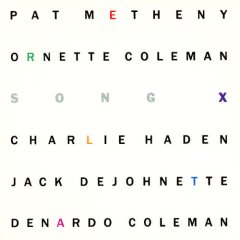
Song X is a collaborative studio album by American jazz guitarist Pat Metheny and saxophonist Ornette Coleman. It is a free jazz record that was produced in a three-day recording session in 1985. The album was released in 1985 by Geffen Records.
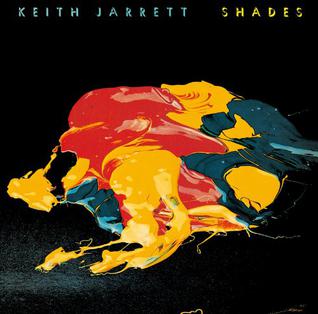
Shades is the fifth album on the Impulse label by jazz pianist Keith Jarrett. Originally released in 1976, it features performances by Jarrett's 'American Quartet', which included Dewey Redman, Charlie Haden and Paul Motian with Guilherme Franco added on percussion.

Twins is an album credited to jazz composer and saxophonist Ornette Coleman, released by Atlantic Records in 1971. The album was assembled without Coleman's input, comprising outtakes from recording sessions of 1959 to 1961 for The Shape of Jazz to Come, This Is Our Music, Free Jazz: A Collective Improvisation, and Ornette! Sessions for "Monk and the Nun" took place at Radio Recorders in Hollywood, California; for "First Take" at A&R Studios in New York City, and all others at Atlantic Studios also in Manhattan. The track "First Take" was a first attempt at "Free Jazz" from the album of the same name.
Discography for American jazz saxophonist Ornette Coleman.

The Art of the Improvisers is an album credited to jazz composer and saxophonist Ornette Coleman, released by Atlantic Records in 1970. The album was assembled without Coleman's input, comprising outtakes from recording sessions of 1959 to 1961 for The Shape of Jazz to Come, Change of the Century, This Is Our Music, Ornette!, and Ornette on Tenor. Recording sessions in 1959 took place at Radio Recorders in Hollywood, California; those in 1960 and 1961 at Atlantic Studios in New York City.
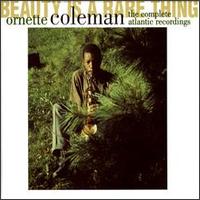
Beauty Is a Rare Thing: The Complete Atlantic Recordings is a box set by American jazz saxophonist and composer Ornette Coleman compiling his master recordings made for Atlantic between 1959 and 1961, released on Rhino Records on November 16, 1993.

To Whom Who Keeps a Record is an album credited to jazz composer and saxophonist Ornette Coleman, originally released by the Japanese subsidiary Warner Pioneer of Warner Bros. Records in 1975. The album, which was assembled by Atlantic producer İlhan Mimaroğlu without Coleman's input, comprises outtakes from Atlantic Records recording sessions of 1959 and 1960 for Change of the Century and This Is Our Music. Sessions for "Music Always" took place at Radio Recorders in Hollywood, California with Billy Higgins on drums; all others took place at Atlantic Studios in New York City with drummer Ed Blackwell.

Science Fiction is an album by the American jazz saxophonist and composer Ornette Coleman, recorded in 1971 and released on the Columbia label.
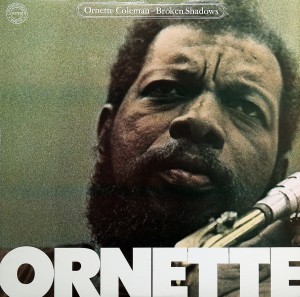
Broken Shadows is an album by the American jazz saxophonist and composer Ornette Coleman recorded in 1971, at the same sessions that produced Science Fiction, but not released on the Columbia label until 1982.
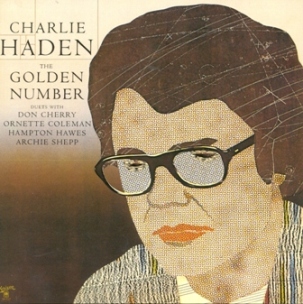
The Golden Number is an album of four duets by bassist Charlie Haden recorded in 1976 and released on the Horizon label in 1977. Haden’s duet partners are trumpeter Don Cherry, tenor saxophonist Archie Shepp, pianist Hampton Hawes and alto saxophonist Ornette Coleman. Hawes died shortly before the album’s release, and Haden dedicated the work to him in the liner notes.

An Evening with Ornette Coleman is a live album by Ornette Coleman. It was recorded in August 1965 at Fairfield Halls in Croydon, London, and was initially released by Polydor International in 1967. The album opens with a recording of a wind quintet by Coleman performed by London's Virtuoso Ensemble, followed by trio performances featuring Coleman on alto saxophone, violin, and trumpet, accompanied by bassist David Izenzon and drummer Charles Moffett.



















